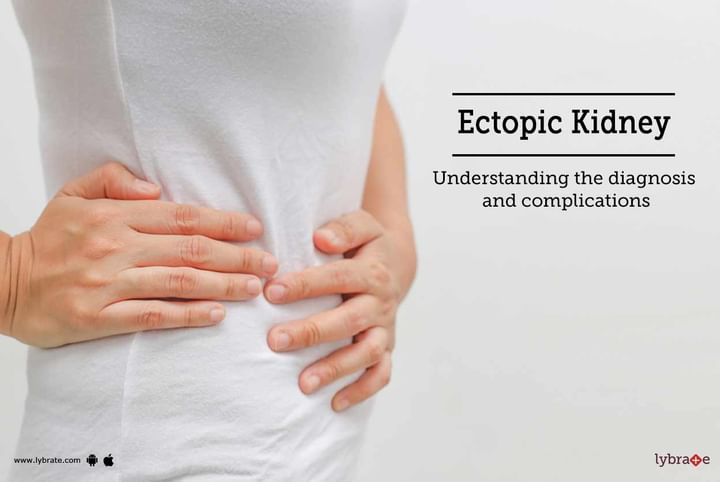Ectopic Kidney: Understanding the diagnosis and complications
An ectopic kidney is a congenital disorder, where the kidneys are abnormally located. Usually, both the kidneys are situated on either side of your spine, just below your rib cage. The condition is very rare, affecting one out of every 1000 births.
Ectopic kidney occurs while the foetus is still developing. It could be the result of a genetic disorder, a poorly developed kidney bud, an infection or illness that might affect the kidneys.
What complications can an ectopic kidney cause?
People with an ectopic kidney are at risk of having a condition known as VUR or Vesicoureteral Reflux (VUR). In this case, urine flows backwards from the bladder to one or both ureters, and sometimes to the kidneys. In other cases, an ectopic kidney can restrict urine from draining properly from the body.
The abnormal location of the ectopic kidney and problems caused due to blocked or slow urine flow can further lead to other complications, including the following –
-
Urinary tract infection – If the urine drainage in the urinary tract is blocked or slowed, bacteria may not be flushed out, as it normally should. This may cause infections in the urinary tract.
-
Kidney stones – Kidney stones develop from minerals, like oxalate and calcium, typically found in the urine. These minerals are likely to accumulate and form stones in the kidney when the urine flow is slower than normal.
-
Trauma – A fused ectopic kidney or one in the pelvis or lower abdomen may have a higher chance of damage from certain types of trauma or injury.
You should consult your healthcare professional to know about treatment options if you experience any of these complications.
How to diagnose an ectopic kidney
Most people with an ectopic kidney do not show symptoms of the condition. However, in some cases, the patient may experience abdominal or back pain, or feel a lump in the abdomen, a frequent urge to urinate, or even blood in the urine. The best way to find out if you have an ectopic kidney is to undergo diagnosis.
Your doctor may perform a few imaging tests and lab tests to confirm the condition and rule out other complications.
-
An ultrasound – Sound waves are used to look inside your body. The images obtained can show where the kidneys are located in the body.
-
Voiding cystourethrogram – The procedure uses X-rays to see how urine passes through the urethra and bladder.
-
Radionuclide scan – This helps to determine the size and location of the ectopic kidney and possible blockages in the urinary tract.
-
MRI – The procedure uses radio waves and a magnetic field to take pictures of the structures and organs in your body. The test can show the shape, size, function, and location of the kidneys.
-
Blood tests and urine tests can also help to diagnose the condition.
An ectopic kidney may not need to be treated if it is not causing any symptoms or posing a threat to your kidney or body. If the above tests confirm a blockage or other potential complications in the urinary tract, then your doctor may suggest surgery and further follow-up to rectify the abnormality.


+1.svg)
